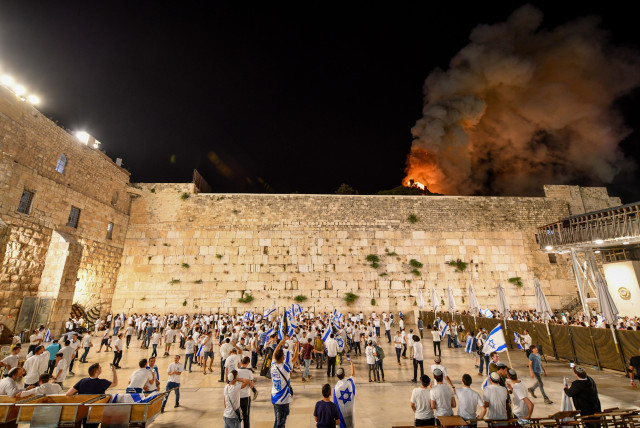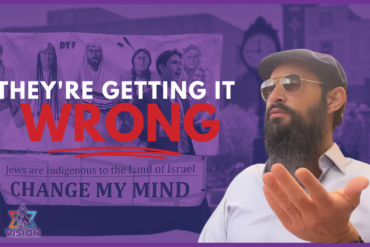Since this current outbreak of violence began, I’ve taken criticism from a number of Israelis, Palestinians and our respective supporters abroad for promoting what some call a “bothsidesist” approach to a situation they see as really clear cut. I’ve been accused of obscuring justice and injustices with my focus on “narratives” and the need to understand why the Other acts in ways that seem indefensible – even objectively evil.
So as the violence escalates and people are needlessly taken from this world, I feel driven by my frustration to clarify why I find this approach to be so crucial.
When I try to encourage Israelis, Palestinians and our respective fans abroad to engage the narrative of the Other, I’m not trying to defend or excuse anyone’s behavior. I’m not asking anyone to capitulate or accept injustice. I’m actually trying to point to what I’m convinced is the only way out of this mess. No one’s doing me a favor by challenging themselves and engaging the Other’s narrative. This is about us all being able to move forward so that we can no longer hurt each other.
I define a “narrative” as a version of reality – a story told about a chain of events that organizes facts while being influenced by ideology. The same chain of events can be organized into many narratives, especially if influenced by different lenses for understanding history and identity. I don’t think it’s possible to fully escape ideology (even those not actively formulating their own are passively accepting the ideology of their broader society) but I do think we can and should be aware of our ideological paradigms in order to transcend them (I believe in objective Truth but don’t think human beings are capable of fully grasping it – the best way to come closer to objective Truth is through being inclusive of other people’s subjective truths).
When it comes to the last 101 years of our conflict here, there are millions of facts and each side tends to selectively choose the facts we prefer while ignoring those that inconveniently complicate the stories we want to believe as true.
Israelis and Palestinians for the most part tell the truth about ourselves but sound offensively ignorant when saying anything about each other. And rather than challenge ourselves to learn how the Other experiences himself and the situation here, we tend to superimpose identities and motivations on one another that have very little to do with how anyone actually thinks or identifies.
Instead of engaging the Other as the Other understands himself, we simply cast him as the antagonist in our own stories – which may sometimes make for effective propaganda but isn’t helpful when trying to either reconcile or decisively win. Good propaganda doesn’t necessarily lead to effective methods of struggle or military strategies because the nature of propaganda is to simplify and obscure. And because Israelis and Palestinians (and our respective fans) are so invested in our propaganda efforts, we ultimately end up not even fighting each other but actually fighting our fantasy antagonists as they exist in our own narrow narratives.
I can appreciate that flare ups like these tend to entrench everyone deeper in our narrow narratives but such entrenchment doesn’t actually help anyone or change anything. Palestinians, for example, aren’t doing us Jews any favors by recognizing the children of Israel as being from this land and deeply connected to it. The insistence on relating to us as European colonizers and framing everything within a colonization lens leads to tactics that would force a foreign occupier to retreat but only causes a stronger population that sees itself as native to become more brutal.
Because of the power imbalances (which Israelis don’t always fully see or understand), Palestinians have far more to lose in the short term and might therefore have more urgent incentives to understand the Jewish people and what we actually think we’re doing here. Although I’ve often said that the power dynamics favoring Israel put more responsibility on us to make the first moves towards building trust, I’m open to the possibility that a combination of Palestinians being more politically advanced and being faced with a more urgent reality might push them to take the lead in the process I see as necessary.
And while Palestinians need to stop relating to Israelis as Europeans that can be fought through anti-colonial tactics (most Israelis don’t even understand that lens and simply see this as an almost horizontal ethnic conflict in which we’ve managed to gain more control and better weapons), Israelis need to stop pretending we’re not ruining the lives of real human beings and further radicalizing a population we live with – a population we actually have every reason to be allied with – against ourselves. We need to stop pretending that this upsurge in violence is just about some property dispute in Sheikh Jarrah or a smokescreen for the cancelation of Palestinian elections. It’s about decades of us attaining our own material liberation at the expense of another people in such a way that’s been very easy for our detractors to frame through a lens of colonization.
I can’t help feeling that all of this week’s violence could have been avoided had enough of us actually had the courage to challenge ourselves and engage the Other’s story and identity. But what’s worse is the extent to which both sides and our fans insist on not being open to the narrative of the Other and accusing people like me of “bothsidesism” because they think actually understanding the Other will make their side weaker or legitimize injustices against them.
So instead both sides keep fighting blind. Against our fantasy antagonists. And people die (mostly Palestinians because we Israelis have the upper hand).





